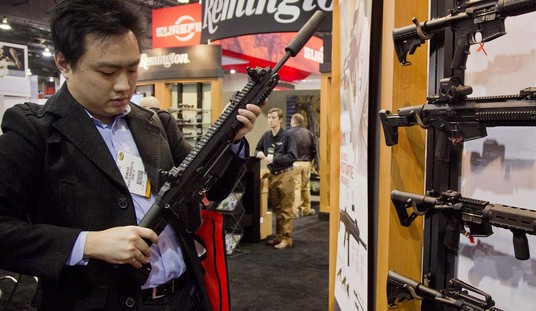Survivors and family members of victims of a 2018 shooting in Toronto that left two people dead and thirteen injured have launched a lawsuit against the firearms manufacturer Smith & Wesson, alleging that the company’s failure to adopt “smart gun” technology enabled the attack on Danforth Avenue in Toronto’s Greektown neighborhood.
Among the claims in the suit, the plaintiffs argue that the manufacturer failed to install smart technology in the weapon that would have prevented unauthorized use of it and that it was reasonably foreseeable that the gun might be used to kill or injure innocent third parties.
“Why isn’t there more technology that helps to secure the usage of that gun so that somebody can’t arbitrarily get a hold of it and use it as a weapon of hate?” Price said.
The suit cites a 2000 agreement between the company and the U.S. government in which Smith & Wesson said that it would incorporate smart gun technology in new firearm designs by 2003.
“Despite the agreement, in 2005 the defendant introduced the Smith& Wesson M&P (or Military and Police) 40 series, the model of the handgun used in the Danforth shooting, which failed to include smart gun technology,” the suit reads.
The gun used in the shooting was a Smith & Wesson M&P handgun that had been reported stolen back in 2015 by a firearms dealer in Saskatoon, Saskatchewan, and the attorneys are alleging that if Smith & Wesson had manufactured “smart guns”, the killer in Toronto wouldn’t have been able to use the stolen firearm in his attack on the city street.
The flaw in that argument is that not only has Smith & Wesson not produced a smart gun for retail sale, no other company has either, because the technology simply isn’t reliable enough to bring to market at the moment.
There are two basic varieties of “smart gun” prototypes. One uses RFID technology to pair the gun with a user, who generally has to wear a watch, a ring, or some other device that allows access to the firearm. The other variety utilizes biometric technology to “unlock” the gun once an authorized user’s fingerprints have been read.
Problems exist with both varieties. The Armatrix IP1, for example, is a .22 caliber pistol that uses wearables and RFID to stop unauthorized individuals from using the gun, but the tech can be easily defeated with a few magnets. Biometric “smart guns” can fail if there’s moisture on the fingerprint reader, and the tech does not allow access for those who may be wearing gloves in cold weather.
In other words, there are lots of practical reasons why Smith & Wesson, along with virtually every other firearms manufacturer out there, hasn’t brought a so-called “smart gun” to market.
I’m not an attorney, and I don’t know nearly enough about Canadian law to predict how successful this lawsuit will be, but the claim that Smith & Wesson failed to incorporate “smart gun” technology and is therefore responsible for this shooting should be tossed out of court, given the fact that no other manufacturer has been able to produce a reliable “smart gun” for either the civilian or government markets.
Meanwhile, gun control activists in Canada are continuing to push Prime Minister Justin Trudeau and members of Parliament to ban the importation and manufacture of all handguns, as well as declaring a moratorium on sales of semi-automatic long guns.
The Liberal government had said it would take action against semi-automatic gun ownership, specifically mentioning consumer versions of in the ARmalite-15 style and variants. This would be done through a mandatory buy-back programme of the so-called military-style rifles, and would enable municipalities to ban handguns.
Bill Blair had said earlier that a buy back programme for the rifles would cost taxpayers between $400-$600 million. The Poly letter calls on the government to act on gun control measures it proposed such as allowing cities to ban handguns but goes further by requesting a national ban on handgun ownership.
Whether it’s through litigation or legislation, Canadian gun owners better get ready for an assault on their ability to own the most common firearms on the planet, because the war on handguns is heating up.









Join the conversation as a VIP Member